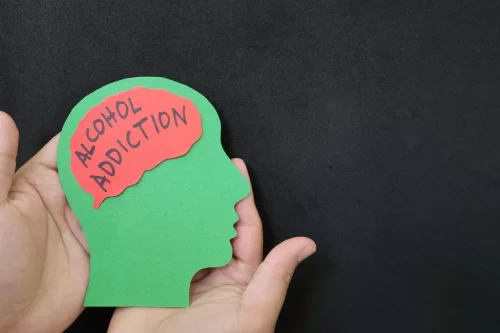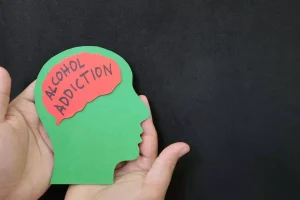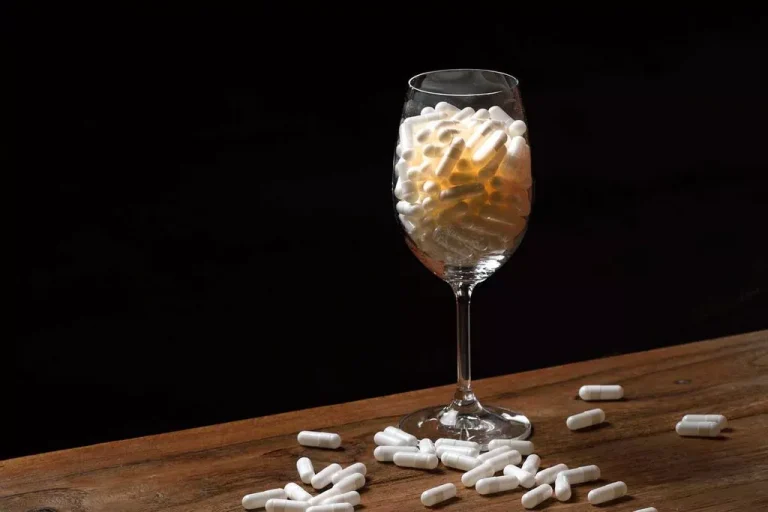
David Friedman, a professor of physiology and pharmacology at marijuana addiction the Wake Forest University School of Medicine, has been conducting drug-abuse research for nearly 40 years. – Conducting a physical examination and ordering relevant laboratory tests to rule out other potential causes for symptoms. Drinking alcohol releases norepinephrine into the brain, a stimulant that can decrease our inhibitions while increasing our impulsivity.

What can I expect during my first appointment with a drug treatment service?

Alcohol’s ability to temporarily reduce anxiety can also intensify the urge to act on impulse. If you’re less worried about what others will think, or of any consequences, you could be more likely to have a strong reaction when something upsets you (2).
- They all described themselves as social drinkers and none claimed to have any past or present drug, alcohol or psychiatric problems.
- When we drink the alcohol in our bloodstream reaches our brain within about five minutes.
- It’s not always easy to open up about alcohol use and recovery, especially to people who don’t have any experience with it, but it’s a crucial part of the process.
- It makes people — even their closest friends — less willing to spend time with them.
- In some cases, medication may also be prescribed to address underlying mental health conditions that contribute to the rage episodes.
What Steps Can Be Taken to Reduce Alcohol-Related Aggression?

While it is always better to discourage the use of alcohol for people who have this tendency, some things can be done to manage the situation. If you have to discuss important topics with someone who experiences rageaholism, timing might make a difference in the response you get. While they’re exploring what might be at the root of their rage, you can help them maintain calm by eliminating things you know might light an emotional fuse. Trying to identify what’s underneath their anger can help you calmly express that you’re listening and you understand.
- Like all addictions, alcohol use disorder is linked to a complex combination of biological, social, and psychological factors.
- Various therapeutic approaches, including cognitive-behavioural therapy and anger management techniques, can effectively address alcoholic rage.
- Aside from the emotional toll it takes, having an alcoholic partner who is frequently angry can also result in tangible repercussions.
Personal and Relational Consequences
- Alcohol also depresses the part of the brain in charge of rational decision-making.
- But this is often easier said than done, and mean drunks can turn violent when provoked — meaning that if you share a living space with one, your safety should be your main priority.
- People spend years in therapy and in treatment for issues of their own that are caused by the consequences of this behavior.
Building a reliable support system can play a crucial role in coping with alcoholic rage syndrome. This syndrome encompasses a range of aggressive behaviors, including verbal and physical aggression, impulsivity, and irritability. Meditation can help clients to relax physical tension, become more self-aware, and work toward creating a healthy mind-body balance. Other holistic methods are often used during a comprehensive addiction and anger management treatment program as adjunctive, or complementary, treatment methods. Massage therapy can help to relieve physical tension and therefore promote mental clarity.
What is alcoholic rage syndrome and how does it relate to alcohol-induced anger?

You can limit your alcohol intake, drink water in between alcoholic beverages, and avoid situations that might trigger anger. Knowing your limits and sticking to them can also help prevent episodes of anger when you drink. Yes, local drug services can provide alcoholic rage syndrome testing and treatment for hepatitis or HIV and AIDS. They aim to address the overall health and well-being of drug users and provide comprehensive support for related health problems. Reducing alcohol-related aggression requires taking proactive steps to address the underlying causes and promote healthier behaviours. You may be wondering what you can do when someone shows signs of rage after consuming too much alcohol.
- In other words, for some anger that they would normally control when sober manifests itself once alcohol disrupts the brain chemistry.
- It is recommended to inquire about financial assistance options or explore charities that might provide affordable or free treatment services available to you.
- When combined with other evidence-based therapies, such as cognitive behavioral therapy (CBT), MAT can help prevent relapse and increase your chance of recovery.


